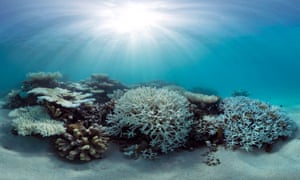Rich countries must ratify the climate change agreement reached in Paris last December, one of the world’s most at-risk nations has warned.
Thoriq Ibrahim, environment and energy minister of the Maldives, told the Guardian that there was “no time to waste”, in ratifying the agreement that was reached more than six months ago, and that it should be a matter of urgency for industrialised countries.
So far, almost the only countries to have passed the accord into law are the small islands most at risk from rising sea levels, and other smaller developing nations.
France became the first large industrialised nation to ratify the Paris agreementonly earlier this month, although a ceremony was held in New York in April at which countries were supposed to affirm their commitment to the international agreement.
At Paris, nearly 200 countries agreed to hold global warming to no more than 2C above pre-industrial levels.Most of the world’s biggest economies came forward with their own domestically-binding targets for cutting carbon in the next decade or longer.
For the poorest nations, likely to be most affected by climate change, the ratification is an urgent matter, said Ibrahim.

“France’s ratification is not only another indication of how seriously the international community takes the Paris agreement, but it also brings us another step closer to having it take effect,” he said. “Small island states were the first 14 countries to ratify the agreement and deposit their instruments of approval with the UN. We encourage all countries, large and small, to do the same.”
He added: “The faster we bring the climate agreement into force, the faster we can take the action required. And we have no time to waste.”
One of the key issues for the Maldives is the damage being done to coral reefs, an issue recently highlighted by a major Guardian investigation into the plight of the world’s most famous corals, the Great Barrier Reef in Australia. The Maldives have also experienced a high degree of coral bleaching, a sign of the death of reefs that comes from warming waters, pollutants and other environmental problems.
Source: